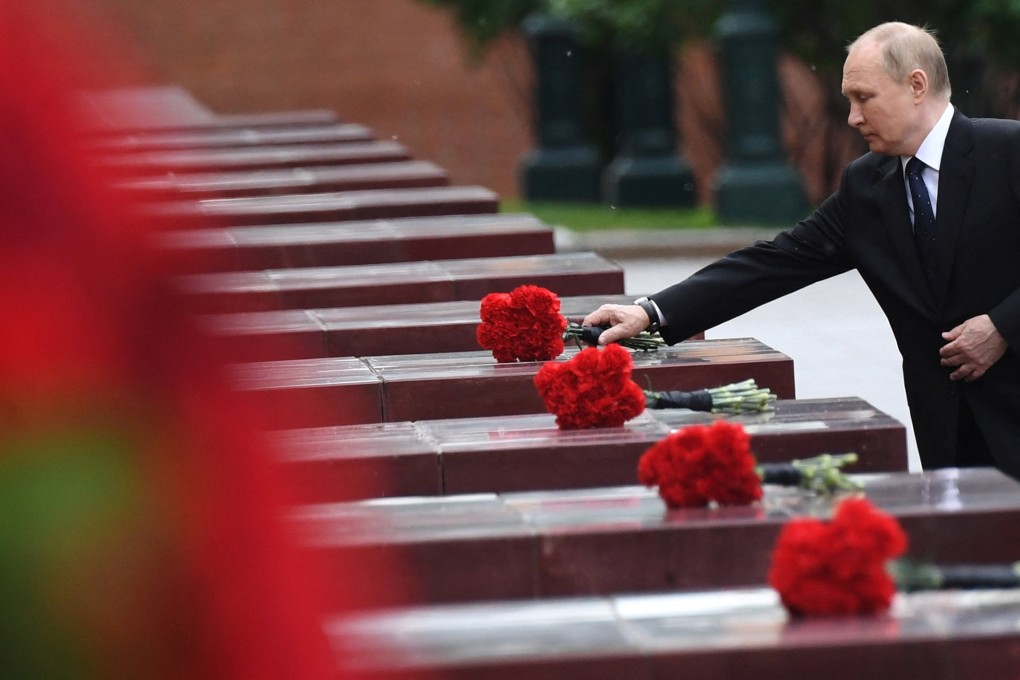Advertisement
Opinion | Russia’s narrative of a Great Patriotic War in Ukraine must be buried
- Originally used to describe the Soviet victory over Nazi German invaders, the narrative is being used to push the Russian war effort in Ukraine
- But no national narrative justifies the invasion of a sovereign country
Reading Time:3 minutes
Why you can trust SCMP
57

During the past year, an interesting booklet has appeared in Russia titled I Live, I Fight, I Win: Rules of Life in War. Approved by the Russian authorities, its intended audience is soldiers swept up in the Ukraine invasion. It includes sections titled “What a Special Military Operation Is” and “In Ukraine We Are Defending Russia”.
But perhaps the most eye-catching chapter is “The Great Patriotic War 2.0”, which reflects a vision of today’s war as an updated version, or even continuation, of the 1941-1945 conflict.
The chapter starts with a list of countries including Germany, Poland and Norway that have imposed sanctions on Russia, and asserts: “Now in Ukraine they are taking their revenge on Russia for our Great Victory. It means the continuation of the Great Patriotic War for us. And we must win, as our grandfathers did in 1945.”
Advertisement
The chapter includes misleading claims such as that Norway and Russia were on opposing sides of that war, but on one point it is clear: Russian troops are to not only exalt the official narrative of the Great Patriotic War but relive it.
It’s a message the Kremlin repeats at every opportunity. Last month, Vladimir Putin travelled to the site of the battle of Stalingrad to honour the more than one million Soviet soldiers and civilians who sacrificed their lives there in 1942-1943.
Advertisement
The battle is widely viewed as a turning point of the war; the Soviet heroism and victory there deserve the highest respect. But for Putin, it was an opportunity to conflate the Great Patriotic War with today’s Ukraine war.
Advertisement
Select Voice
Select Speed
1.00x
